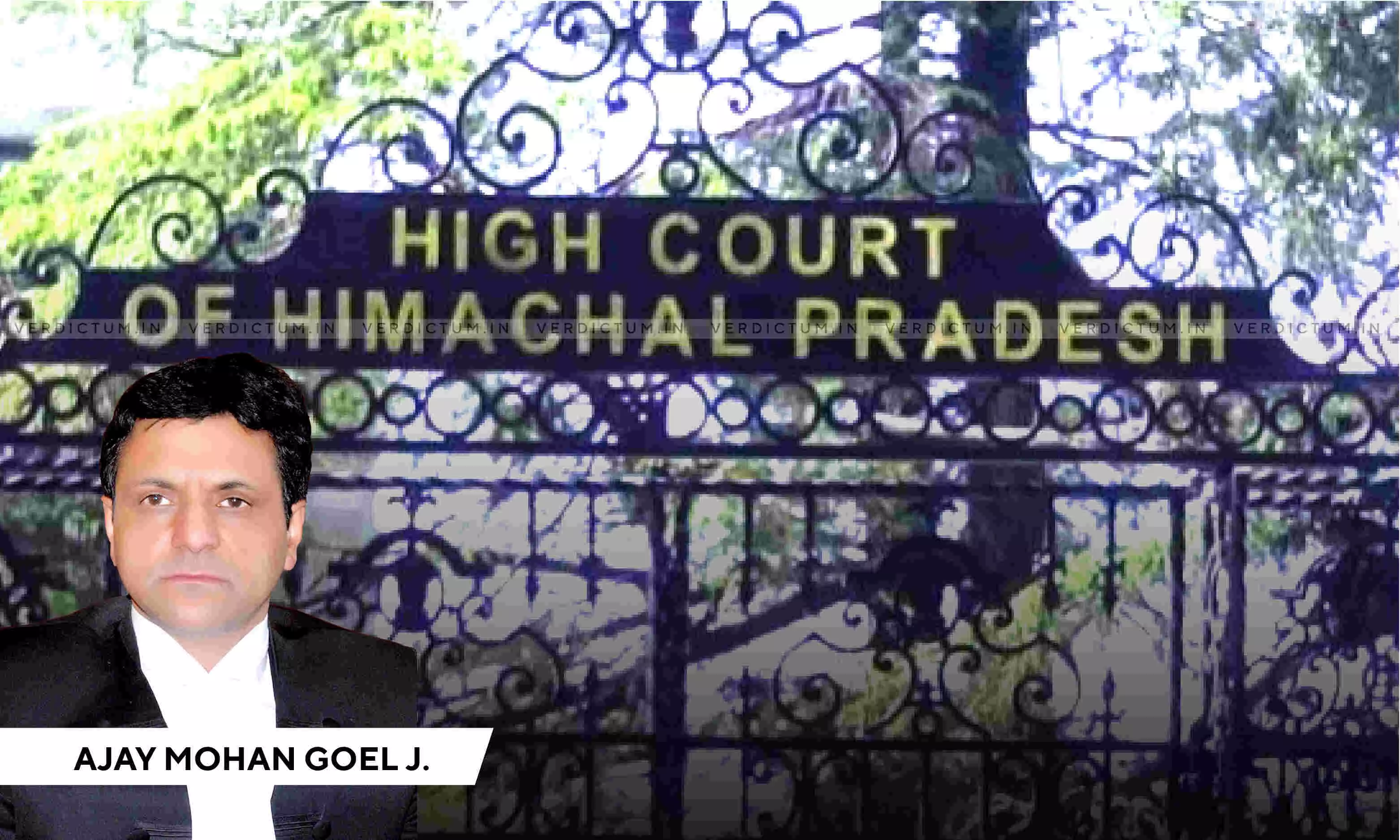
Justice Ajay Mohan Goel, Himachal Pradesh High Court
Legal Representatives Of Deceased Judgment Debtor Who Was Set Ex-Parte To Be Brought On Record: Himachal Pradesh High Court
 |
|The Himachal Pradesh High Court has held that upon the death of a judgment debtor who was proceeded against ex-parte during the execution proceedings, his legal heirs must be brought on record.
The Court was considering a Petition against a judgment passed by the Civil Judge in an Execution Petition in terms whereof, the decree-holder was directed to move an appropriate Application to bring on record the legal representatives of the deceased judgment-debtor.
The Bench of Justice Ajay Mohan Goel held, ".....in the light of the said adjudications of the Hon’ble Supreme Court, there is no doubt that after the death of the judgment-debtor, the legal representatives of the deceased judgment-debtor are to be brought on record. Therefore, the contention of the learned counsel for the petitioner that the order passed by the learned Civil Court directing the judgment-debtor to bring the legal representatives of the deceased judgment-debtor on record, are perverse and is not sustainable in the eyes of law...."
The Petitioner was represented by Advocate Bhag Chand Sharma, while the Respondent was represented by Advocate Ravi Thakur.
Facts of the Case
The Civil Suit filed by the Petitioner stands decreed in this favour. According to the Petitioner, the original defendant was proceeded against ex-parte during the adjudication of the Civil Suit. Even in the execution proceedings, he did not appear and he was proceeded against ex-parte. Thereafter, during the pendency of the execution proceedings, judgment-debtor died. The issue which was decided in terms of the impugned order by the Executing Court was as to in the given circumstances, whether the decree-holder has to bring on the record the legal representatives of the deceased judgment-debtor or not. As per the Court, legal heirs have to be brought on record.
Counsel for the Petitioner submitted that there is no provision in the Civil Procedure Code that the legal representatives of the deceased judgment-debtor are to be brought on record. He argued that as the judgment-debtor was now dead, therefore, the decree-holder was having a legal right to get the decree executed without any hindrance from any quarters, including without impleading the legal representatives of the deceased judgment-debtor as judgment debtors.
Reasoning By Court
The Court at the outset referred to Section 50 of the Civil Procedure Code, which provides that where a judgment-debtor dies before the decree has been fully satisfied, the holder of the decree may apply to the Court which passed it to execute the same against the legal representatives of the deceased.
"Now, but natural in the light of the said Statutory provision, such a decree can be executed against the legal representative of the deceased only if such legal representative is firstly brought on record. In this backdrop, if one peruses Order XXII, Rule 12 of the Civil Procedure Code, the same provides that nothing in Rules III, IV and VIII of Order 22 of Civil Procedure Code shall apply to the proceedings in execution of a decree or order", the Court noted
It referred to the Supreme Court's ruling in V. Uthirapathi Vs. Ashrab Ali & Ors., (1998) wherein it was held that if after the filing of an execution petition in time, the decree holder dies and his legal representatives do not come on record or the judgment-debtor dies and his legal representatives are not brought on record, then there is no abatement of the execution.
"If there is no abatement, the position in the eye of law is that the execution petition remains pending on the file of the execution Court. If it remains pending and if no time limit is prescribed to bring the legal representatives on record in execution proceedings, it is open in case of death of the decree-holder for his legal representatives to come on record at any time. The execution application cannot even be dismissed for default behind the back of decree-holder's legal representatives", the Court stated.
Stressing that that the court has held that held that in case of death of judgment-debtor, the decree-holder could file an application to bring the legal representative of judgment debtor on record at any time, the Court observed, "Of course, in case of death of judgment-debtor, the Court can fix a reasonable time for the said purpose and if the decree holder does not file an application for the aforesaid purpose, the Court can dismiss the execution petition for default. But in any event, the execution petition cannot be dismissed as abated."
The Petition was accordingly dismissed.
Cause Title: Smt. Ganga Jogta vs. Shri Nand Lal (deceased) through his legal heirs
Click here to read/ download Order